Transient Heat Transfer
Solution 159 (NLTCSH)
This solution is included with NX NASTRAN Dynamics
General Capabilities
Solution methods
- Steady state, linear and/or nonlinear (SOL 153).
- Transient, linear and/or nonlinear (SOL 159).
Heat conduction
- Temperature-dependent conductivity.
- Temperature-dependent specific heat.
- Anisotropic thermal conductivity.
- Latent heat of phase change.
- Temperature-dependent internal heat generation.
- Weighted temperature gradient dependent internal heat generation.
- Time-dependent internal heat generation.
- Free convection boundaries:
- Temperature-dependent heat transfer coefficient.
- Weighted temperature gradient dependent heat transfer coefficient.
- Time-dependent heat transfer coefficient.
- Nonlinear functional forms.
- Weighted film temperatures.
Forced convection
- Tube fluid flow field relationships – H(Re,Pr).
- Temperature dependent fluid viscosity, conductivity, and specific heat.
- Time-dependent mass flow rate.
- Temperature-dependent mass flow rate.
- Weighted temperature gradient dependent mass flow rate.
Radiation to space
- Temperature-dependent emissivity and absorptivity.
- Wavelength dependent emissivity and absorptivity.
- Time-dependent exchange.
Radiation enclosures
- Temperature-dependent emissivity.
- Wavelength-dependent emissivity.
- Diffuse view factor calculations with self and third-body shadowing.
- Adaptive view factor calculations.
Net view factors
- User-supplied exchange factors.
- Radiation matrix control.
- Radiation enclosure control.
- Multiple radiation enclosures.
Applied heat loads
- Directional heat flux.
- Surface normal heat flux.
- Grid point nodal power.
- Temperature-dependent heat flux.
- Weighted temperature gradient dependent heat flux.
- Time-dependent heat flux.
- Temperature boundary conditions:
- Specified constant temperatures for steady state and transient.
- Specified time-varying temperatures for transient.
- Initial conditions:
- Starting temperatures for nonlinear steady state analysis.
- Starting temperatures for all transient analyses.
- Thermal control systems:
- Local, remote, and time-varying control points for free convection heat transfer
coefficients. - Local, remote, and time-varying control points for forced convection mass flow rates.
- Local, remote, and time-varying control points for heat flux loads.
- Local, remote, and time-varying control points for internal heat generation rates.
- Transient nonlinear loading functions.
- Perfect conductor algebraic constraint temperature relationships.
- Output graphical display – basic:
- Heat flows for conduction and boundary surface elements.
- Temperature versus time for grid points.
- Enthalpy versus time for grid points.
- Isothermal contour plots.
Miscellaneous
- NX Nastran DMAP and DMAP Alter capability.
- NX Nastran restart capability.
- Direct matrix input to conduction and heat capacitance matrices.
- Lumped mass and discrete conductor representations.


